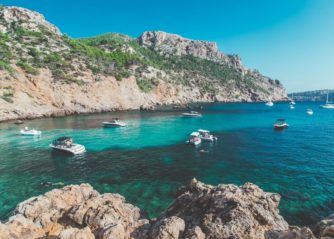All Inclusive Portugal: A Complete Guide to the Ultimate Vacation

”All Inclusive Portugal: A Complete Guide to the Ultimate Vacation”
Introduction:

Portugal, known for its stunning coastline, rich history, and vibrant culture, has become a beloved holiday destination for travelers worldwide. In recent years, the concept of ”all inclusive” has gained popularity, providing tourists with a hassle-free and indulgent vacation experience. This article aims to provide a comprehensive overview of ”all inclusive Portugal,” exploring its various types, popularity, quantitative measurements, differences, as well as the historical pros and cons associated with this vacation style.
What is ”All Inclusive Portugal”?
”All inclusive Portugal” refers to a vacation package that includes accommodation, meals, drinks, and often additional amenities, offering guests a worry-free and all-encompassing experience. This concept provides visitors with the opportunity to relax and enjoy their holidays without the need to worry about organizing meals, activities, or transportation.
With a range of options available, ”all inclusive Portugal” caters to various preferences and budgets. Whether you choose a luxurious resort with lavish amenities or a cozy boutique hotel tucked away in a picturesque village, there is an option for everyone.
The Types and Popularity of ”All Inclusive Portugal”
Portugal offers a wide array of ”all inclusive” options, ensuring travelers can find the perfect fit for their dream vacation. Some of the popular types of ”all inclusive Portugal” include beach resorts, spa retreats, golf resorts, and family-friendly hotels.
Beach resorts are particularly popular, especially along the Algarve coastline, boasting beautiful sandy beaches and a plethora of water activities. Spa retreats, on the other hand, focus on holistic wellness, offering rejuvenating treatments and tranquil environments. Golf resorts cater to enthusiasts of the sport, providing access to world-class golf courses and luxurious accommodation. Lastly, family-friendly hotels offer a wide range of activities and amenities suitable for children, ensuring an enjoyable experience for the whole family.
Quantitative Measurements of ”All Inclusive Portugal”
When it comes to measuring the popularity and success of ”all inclusive Portugal,” several quantitative factors come into play. This includes the number of bookings, customer satisfaction ratings, and revenue generated. By analyzing historical data, travel agencies and hotels can gain insights into customer preferences and adapt their offerings accordingly.
Additionally, guest reviews, ratings, and surveys play a vital role in quantifying the satisfaction levels of tourists who have experienced ”all inclusive Portugal.” Scores and feedback on cleanliness, quality of service, food, and amenities can significantly impact a resort’s reputation and success.
The Differences Between ”All Inclusive Portugal” Options
Although ”all inclusive Portugal” offers a comprehensive vacation experience, there are noticeable differences between the various options available. These differences can include the level of luxury and resort amenities, the geographical location, the type of cuisine offered, and the targeted demographic.
High-end resorts may offer more luxurious rooms, exclusive amenities such as private pools or restaurants, and personalized services. In contrast, budget-friendly options might provide more basic accommodations and limited on-site facilities but still deliver an enjoyable experience.
The geographical location also plays a significant role, with coastal resorts offering easy access to beaches and water activities, while those situated inland may offer opportunities for cultural exploration and nature-based adventures.
Cuisine also varies, with some resorts specializing in traditional Portuguese dishes, while others offer international cuisine to cater to a broader audience.
Historical Overview of Pros and Cons of ”All Inclusive Portugal”
Over the years, ”all inclusive Portugal” has undergone several transformations, leading to both positive and negative implications.
Pros include the convenience and peace of mind for travelers, knowing that most of their expenses are covered upfront. This allows guests to fully enjoy their holidays without constantly worrying about dining or activity costs. Furthermore, inclusive packages often provide a wide range of amenities and entertainment options, ensuring there is something for everyone.
However, there are also cons associated with ”all inclusive Portugal.” Some argue that these packages may discourage tourists from exploring the local culture and spending money in local restaurants and shops, potentially impacting the local economy. Additionally, some all-inclusive resorts can create a sense of isolation, limiting interactions with local communities and preventing visitors from fully immersing themselves in the destination.
Conclusion:
”All inclusive Portugal” offers a convenient and stress-free vacation experience for travelers seeking relaxation and indulgence. With various options available, from luxurious beach resorts to family-friendly hotels, there is a suitable choice for every type of visitor. By considering quantitative measurements, differences between options, and historical pros and cons, travelers can make informed decisions and enjoy a memorable vacation in Portugal.
















































